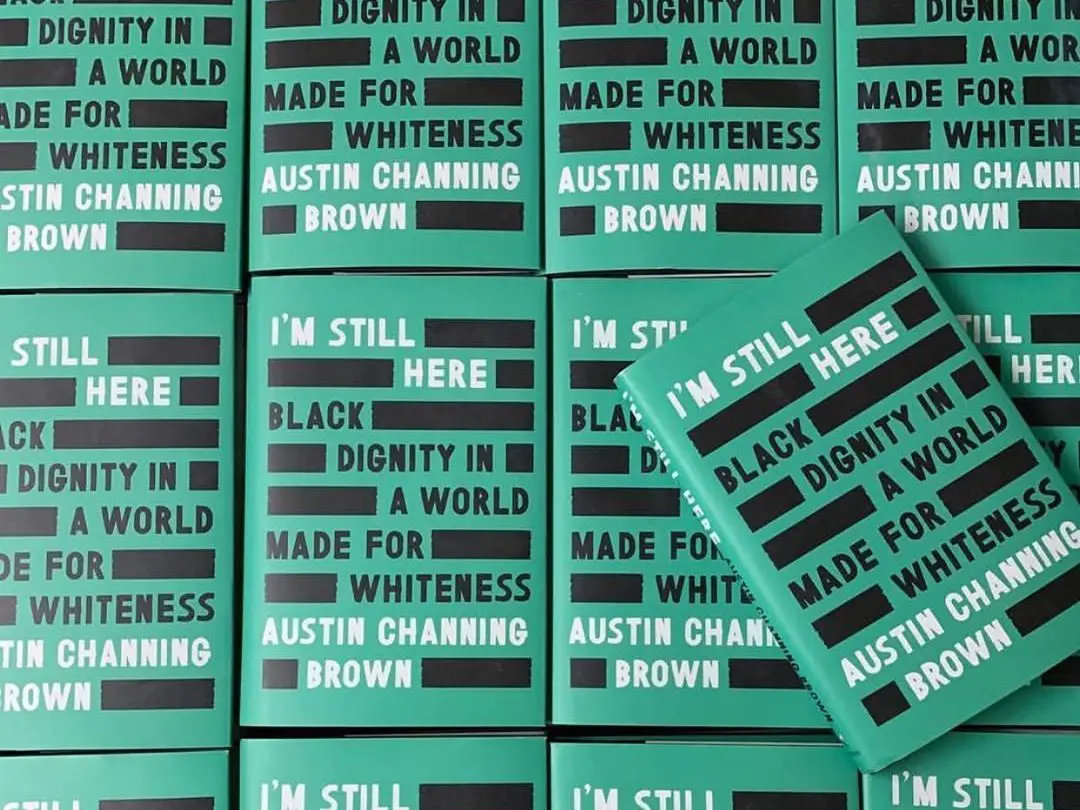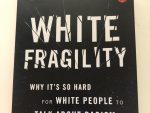Author Austin Channing Brown is dedicated to “exploring the intersections of racial justice, faith and black womanhood.” Her first book, “I’m Still Here: Black Dignity in a World Made for Whiteness,” was published in May 2018. It rose up the Amazon bestseller list not long after it came out and has received great critical reviews.
“I’m Still Here” highlights the way that black people are treated in the United States, and discusses how the author was able to embrace her own blackness.
In the book, Brown elaborates on the origin of her name. Her parents named her Austin — a name most typically associated with white men — as a way to fight conscious and unconscious racial bias in the workforce. As one study shows, “white” sounding names, such as Emily or Greg, are 50% more likely to get a call back from employers than “black” sounding names, like Lakisha and Jamal. As Brown explains, many employers are shocked to find that she is not a white man, but a black woman.
“I’m Still Here” outlines the different reactions that she has received from white people in her professional and personal life, which have ranged from racist comments to much less noticeable biased responses. Brown gives examples of what she calls “nice white people” and informs readers that an association with “being nice” can sometimes overshadow inappropriate behaviors. She later elaborates on other crucial terms, such as white guilt and white fragility.
So how is this book relevant? “I’m Still Here” talks about events in recent history; while Brown does talk about slavery and the era of Jim Crow, she also focuses on stories such as Ferguson, the shooting of Trayvon Martin and the 2015 Charleston church shooting. The book outlines the experiences that many black people face in America, showing the dangerous effects that one simple action can have — actions that others might not see.
“I’m Still Here” shows that, even though places like churches and schools talk about diversity, they have yet to actually do much about it, evident from the racial inequality still existing in those places. The book also explores Brown’s journey toward finding and appreciating her own self-worth, which is something that readers will be able relate to, regardless of their own relationships to race or gender.
It emphasizes the humanity of black culture, pride and dignity. As Brown says in the book, “I had to learn what it really means to love Blackness.” Its main focus is the author’s personal journey, but she also includes her family, her colleagues and those important to her.
Today is my book birthday and I’m so grateful for all of you who bought a copy (or copies) and I miss my friend because she would be so excited with me. Bittersweet, but I’m gonna try to enjoy the sweetness today.
Thanks for making me an author, yall.
📸: Columbia Sem pic.twitter.com/9ajbwp68SZ
— Austin Channing Brown (@austinchanning) May 15, 2019
For example, Brown tells the story of her cousin Dalin; she tells readers about his personality and his laugh, and how he was the kind, caring and loving father of a beautiful girl. She also talks about how she wanted to have a closer relationship with him, but that it was difficult because he was always in and out of jail until finally, due to President Clinton’s three strikes law, he was sent to prison for 10 years.
While he was in prison, Brown wrote to him to reconnect and see how he was surviving in there. His reply was the last communication that his family had from him. He died due to a lightning strike in prison, and it took the family several days to find out what had happened to him, and longer still to be able to bury him. While she wasn’t particularly close to Dalin, the loss of her cousin affected Brown greatly.
“I’m Still Here” is filled with powerful stories and quotes that help to paint a clearer picture of what it means to be black in America. At one point, Brown writes, “It’s not fair that my knowledge doesn’t save me, that I can still be hurt. But I am human. I am human. And I am still alive.”
Brown attended North Park University, where she received a degree in business management, and she earned a master’s degree in social justice from Marygrove College in Detroit. She has worked with nonprofits and churches, as well as universities, for the advancement of racial justice and reconciliation.
The first-time author has done a lot of great things and continues to do so through her book, which helps shed light on the issues that many black people in America face. Hopefully, “I’m Still Here” will inspire others to change, and start the call for racial justice and equality when they see the need. By reading this book, people can become more educated on racial issues, and educate others about it as well.
More people need to read this book and understand that society presents very real problems for people of color. You shouldn’t turn a blind eye because it is important and especially relevant in today’s society; it deals with contemporary problems that will continue to happen, unless others begin to understand the influence they have on those around them.
By understanding the problems that surround black people in America, readers can begin to make a difference, and no practical change can happen until we understand those issues.
















